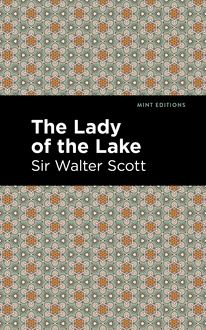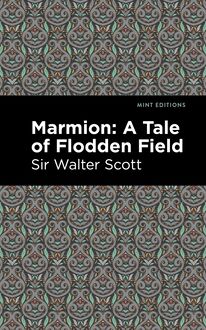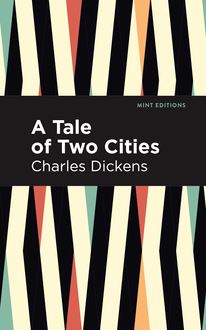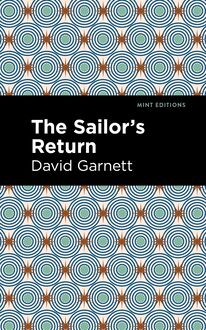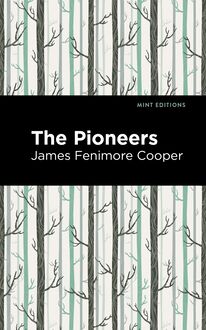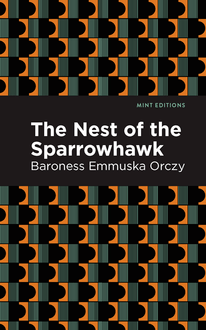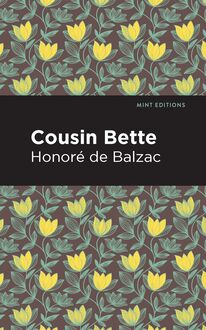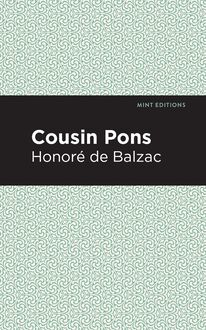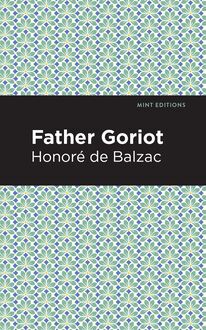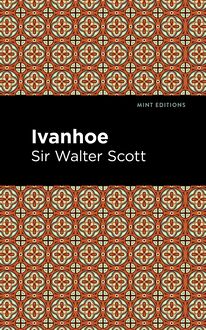-
 Univers
Univers
-
 Ebooks
Ebooks
-
 Livres audio
Livres audio
-
 Presse
Presse
-
 Podcasts
Podcasts
-
 BD
BD
-
 Documents
Documents
-
- Cours
- Révisions
- Ressources pédagogiques
- Sciences de l’éducation
- Manuels scolaires
- Langues
- Travaux de classe
- Annales de BEP
- Etudes supérieures
- Maternelle et primaire
- Fiches de lecture
- Orientation scolaire
- Méthodologie
- Corrigés de devoir
- Annales d’examens et concours
- Annales du bac
- Annales du brevet
- Rapports de stage
La lecture à portée de main
Vous pourrez modifier la taille du texte de cet ouvrage
Découvre YouScribe en t'inscrivant gratuitement
Je m'inscrisDécouvre YouScribe en t'inscrivant gratuitement
Je m'inscrisEn savoir plus
Vous pourrez modifier la taille du texte de cet ouvrage
En savoir plus

Description
A period drama centering the power struggle for Queen Anne’s throne involving a poor young man and the two disparate figures eager to take her place. An unsuspecting hero is roped into an insidious plot that is much more than he bargained for. Harry Boyce is an upstanding man who is poor but very bright. His father was a local scoundrel who failed to provide any stability or positive direction. Despite negative influences, Harry maintains a good heart. When he sees a woman and her servant being attacked on the road, he quickly comes to their aid. This sparks a whirlwind romance that’s thwarted by the sudden return of Harry’s devious father. His arrival coincides with two prominent men fighting for Queen Anne’s throne. The Highwayman is a captivating but rare novel from H.C. Bailey. Originally published in 1915, the story balances its unsavory villains with a good-hearted hero. There’s also a thrilling romance, melodrama and a touch of unexpected humor. With an eye-catching new cover, and professionally typeset manuscript, this edition of The Highwayman
is both modern and readable.Sujets
Informations
| Publié par | Mint Editions |
| Date de parution | 14 mai 2021 |
| Nombre de lectures | 0 |
| EAN13 | 9781513286341 |
| Langue | English |
| Poids de l'ouvrage | 1 Mo |
Informations légales : prix de location à la page 0,0500€. Cette information est donnée uniquement à titre indicatif conformément à la législation en vigueur.
Extrait
The Highwayman
H.C. Bailey
The Highwayman was first published in 1915.
This edition published by Mint Editions 2021.
ISBN 9781513281322 | E-ISBN 9781513286341
Published by Mint Editions®
minteditionbooks.com
Publishing Director: Jennifer Newens
Design & Production: Rachel Lopez Metzger
Project Manager: Micaela Clark
Typesetting: Westchester Publishing Services
C ONTENTS I. T HE C OMPLETE H ERO II. T HE H OUSE OF W AVERTON III. A M AN OF M ANY W ORLDS IV. A G ENTLEMAN ’ S P URSE V. T HE W ORLD ’ S A M IRACLE VI. H ARRY IS N OT G RATEFUL VII. G ENEROSITY OF A F ATHER VIII. M ISS L AMBOURNE L OOKS S IDEWAYS IX. A NGER OF AN U NCLE X. Y OUNG B LOOD XI. A BSENCE OF M R . W AVERTON XII. I N H ASTE XIII. D ISTRESS OF A M OTHER XIV. S PECTATORS OF P ARADISE XV. M RS . B OYCE XVI. T HE A FFAIR OF S IR G EORGE XVII. R ETURN OF M R . W AVERTON XVIII. H ARRY IS D ISMISSED XIX. A LISON F INDS F RIENDS XX. R ETURN OF C APTAIN M C B EAN XXI. C ONSOLATIONS BY A F ATHER XXII. T WO ’ S C OMPANY XXIII. T HE H OUSE IN K ENSINGTON XXIV. Q UEEN A NNE IS D EAD XXV. S AUVE Q UI P EUT XXVI. R EVELATIONS XXVII. V IRTUE IS ITS O WN R EWARD XXVIII. I N THE T AP XXIX. A LISON K NEELS XXX. E MOTIONS BY M R . W AVERTON XXXI. C APTAIN M C B EAN T AKES H ORSE XXXII. P ERPLEXITIES OF C APTAIN M C B EAN XXXIII. R EMORSE OF C OLONEL B OYCE XXXIV. H ARRY W AKES U P
I
T HE C OMPLETE H ERO
H arry Boyce addressed Queen Anne in glittering verse. She was not present. She had, however, no cause to regret that, for he was tramping the Great North Road at four miles by the hour—a pace far beyond the capacity of Her Majesty’s legs; and his verses were Latin—a language not within the capacity of Her Majesty’s mind. Her absence gave him no grief. In all his twenty-four years he could not remember being grieved by anyone’s absence. His general content was never diminished at finding himself alone. He chose the Queen as the subject of his verses merely because he did not admire her. She appeared to him then, as to later generations, a woman ineffectual and without interest; a dull woman physically, mentally, and perhaps morally; just the woman upon whom it would be hardest to make an encomium of any splendour. So he was heartily ingenious over his alcaics, and relished them.
From this you may divine much that you have to know about the soul of Harry Boyce. It was more given to mockery than enthusiasms, apter to criticisms than devotion, not very gentle nor very kind, and so quite satisfied with itself and by itself. To be sure, it was yet only twenty-four.
You discover also other things less fundamental. He was something of a scholar, as scholarship was reckoned in those placid days. He had even some Greek—more than Mr. Pope and quite as much as Mr. Addison. His Latin verses would have brought him a fellowship at Merton if he had been willing to take Holy Orders, “I may take them indeed; but how believe they have been given me?” quoth he to the Warden with a tilt of one eyebrow. Whereat the Warden, aghast, wrote him off as a youth unreasonable, impracticable, and impish. Many others had the same opinion of Harry Boyce before the world was done with him. Few of them saw in his antics the uncertain spasms of too tender a conscience. But you must judge.
Of course he was poor. He could only boast a bob wig, a base thing, which, for all the show it made, might have been a man’s own hair. He wore no sword. His hat lacked feather and lace. His coat and breeches were but black drugget, shiny at each corner of him and rusty everywhere. His stockings were worsted, and darned even on his excellent calves. His shoes had strings where buckles should have been, and mere black heels—and low heels at that. As you know, he could walk at a round pace with them—a preposterous, vulgar thing. There was nothing in him to give this poverty a romantical air. To be sure, he had admirable legs, but the rest was neither good nor bad. He was of the middle size and a wholesome complexion. You would look at him long and see nothing rare enough to be worth looking at. If you looked longer yet you might begin to be surprised: his so ordinary face was extraordinary in its lack of expression.
The man who owned it must be either very dull of heart and mind, or self-contained and of self-control beyond the common. But whatever the heart might be, no one ever took the eyes for the eyes of a fool. They were keen, alert, perpetually on guard. There is a letter extant—it was indeed a dear friend who wrote it—which mocks at Harry for his “curst stand-and-deliver stare.” But it is a queer thing that most men had to know Harry Boyce a long time before they remarked that his eyes were not quite of the same colour. The common English grey-green-blue was in both of them, but one had a bluer glint than the other. The oddity, when it was discovered, seemed to make the challenge of the eyes more defiant and more baffling, as though they gleamed from the shadow of a mask.
Not that anyone cared yet whether he wore a mask or his soul in that placid, ordinary face. Who should care a pinch of snuff for “a scholar just from his college broke loose” with a penny farthing in his pocket, who had to pioneer young gentlemen through their Horace and their Tully for his bed and board? When you meet him, Harry Boyce was happy in having caught for his pupil a young fellow who had not merely money but brains, and so sublime a condescension that Harry was not sent away from table with the parson when the puddings came. Mr. Geoffrey Waverton was pleased to have a value for him, and defended him from his natural duty of being gentleman usher to Lady Waverton. So, Mr. Waverton having taken horse, Harry was free to go walking.
It was late in a wet autumn, and all the clay of Middlesex slippery as butter and, withal, affectionate as warm glue. Harry kept to the highway. Though its miles of mud and water were, on the surface, even worse than the too green meadows or the gleaming brown furrows of plough land, a careful man could count upon its letting him go no further than knee deep. When he came to Whetstone, Harry’s feet were brown, shapeless, weighty masses, but he had not lost either shoe, and he was still in hopes of reaching Barnet and a pint of small beer before it was time to struggle back. At the worst a dry throat and wet legs were a cheap price for escaping the voice of Lady Waverton, who, in the afternoons, read the romances of Mlle. de Scud é ry aloud.
He could see the tufts of smoke above Barnet and its church on the hill-top. He was winding down to the bottom of the valley from which that hill rises, when eloquence arrested him. He may at other times have heard profanity as copious, but never profanity so vehement or at such speed. The orator was a woman.
Harry stood to listen with critical admiration. Madame mixed the ugly and the pleasant rarely; she made a charming grotesque. Her mind was very far from nice and provided her with amazing images; but she had a pretty, womanly voice, and hard though she drove it, it would not break to one ugly note. Disgusting epithets, mean threats, poured out in mellow music. Harry splashed on round the corner. He was eager to see her.
In the morass at the cross-lanes by the green, a coach was stuck—a coach of splendour. It was a huge thing as big as a room, half glass, half gold and garter blue, and it swayed luxuriously on its great springs. Six horses heaved at it in vain with great splashing and squelching, and a whole company of servants, some mounted, some afoot, struggled with them.
The profane woman had half her body and two gesticulating arms out of the coach window. She was plainly neither a drab nor in liquor. Harry halted out of range of the splashes to examine and enjoy her. She had been comely, and still could hold a man’s eye with her curves of neck and bosom. The piquant features must have been adorable before they sharpened and her cheeks faded and the lines came. Her abundant hair must once have been gold, and was not yet altogether grey.
“You filthy slug,” said she. “Samuel! Stand to it, I say. Damme, I’ll have a whip about that loose belly of yours! Now pull, you swine, pull. Odso, flog the black horse. You, devil broil your bones, lay on to him. What now? Od rot you, Antony, you’ll see no money this month, you—” She became unprintable. As she took breath again, she saw Harry Boyce calmly contemplative. “You dog, who bade you stand and gape? Go, give a hand there, I say.”
Harry touched his hat. “By your leave, ma’am, I am too busy admiring you.”
“William, put that rogue into the ditch,” said she.
All this while a man in the coach had been writing, calmly intent upon his tablets as though there was not a sound or a rage within a mile. He now stood up, and, while his lady was still execrating through one door of the coach, he opened the other and came out. Two of the servants, obedient to the lady’s oaths, were approaching Harry, who waited them with calm and a swinging stick. The man waved his hand at them and they turned tail. But he had no further interest in Harry. He stood to watch the struggles of his horses and his men. He was of some height, and, though past middle age, bore himself with singular grace and vigour. He had still a rarely handsome face—too handsome, by far, for Harry’s taste. The features were of an impossible, absurd perfection. There was something superhuman or fatuous, at least something vastly irritating, in his assured calm, his air of blandly confident supremacy.
He walked on to the leaders and, with a gesture and a word, set the whole team pulling at an angle. Meanwhile the lady had earnestly continued her abusive orders, but none of the servants now professed to heed her. Dragging the horses on, or labouring hand and shoulder at the wheels, they were now effective, and they watched the man’s eye as though it were an inspiration. Wondering why he did, Harry, too, put his weight on a w
-
 Univers
Univers
-
 Ebooks
Ebooks
-
 Livres audio
Livres audio
-
 Presse
Presse
-
 Podcasts
Podcasts
-
 BD
BD
-
 Documents
Documents
-
Jeunesse
-
Littérature
-
Ressources professionnelles
-
Santé et bien-être
-
Savoirs
-
Education
-
Loisirs et hobbies
-
Art, musique et cinéma
-
Actualité et débat de société
-
Jeunesse
-
Littérature
-
Ressources professionnelles
-
Santé et bien-être
-
Savoirs
-
Education
-
Loisirs et hobbies
-
Art, musique et cinéma
-
Actualité et débat de société
-
Actualités
-
Lifestyle
-
Presse jeunesse
-
Presse professionnelle
-
Pratique
-
Presse sportive
-
Presse internationale
-
Culture & Médias
-
Action et Aventures
-
Science-fiction et Fantasy
-
Société
-
Jeunesse
-
Littérature
-
Ressources professionnelles
-
Santé et bien-être
-
Savoirs
-
Education
-
Loisirs et hobbies
-
Art, musique et cinéma
-
Actualité et débat de société
- Cours
- Révisions
- Ressources pédagogiques
- Sciences de l’éducation
- Manuels scolaires
- Langues
- Travaux de classe
- Annales de BEP
- Etudes supérieures
- Maternelle et primaire
- Fiches de lecture
- Orientation scolaire
- Méthodologie
- Corrigés de devoir
- Annales d’examens et concours
- Annales du bac
- Annales du brevet
- Rapports de stage
